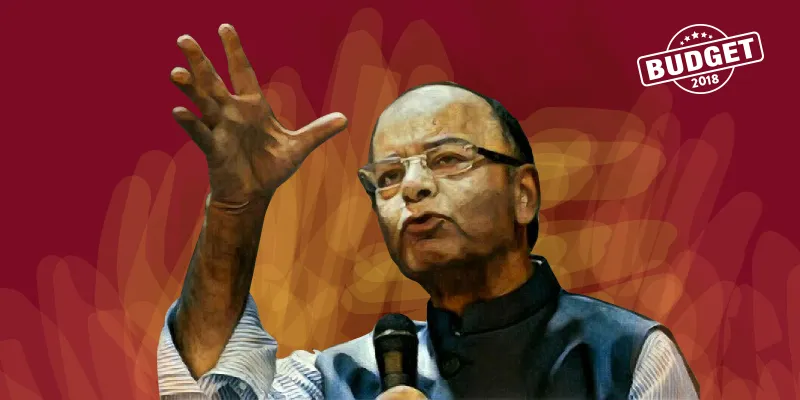Fin-tech startups have mixed reactions for Union Budget 2018

When Finance Minister Arun Jaitley presented the Union Budget 2018 on Thursday, the whole country was waiting to see how its wallets would be controlled in the coming 12 months. Startups were no exception, as Jaitley’s briefcase was expected have set major possibilities for their progress this year. Among them, the fin-tech sector was no exception.
However, the Budget left fin-tech startups with mixed reactions. While they are excited about the government’s efforts towards financial inclusion and increasing digitisation, some are left wondering about the executional efficiency.
Also read: Union Budget gives e-commerce a boost with 5 lakh WiFi hotspots in rural areas
Promoting financial inclusion
Renu Satti, MD and CEO, Paytm Payments Bank, believes that the government’s Budget decisions will bring about higher penetration of banking services and easy access to credit. According to her, digitisation of agricultural markets will bring farmers into the formal economy. “We look forward to leverage these initiatives to provide digital payments, banking and other financial services to rural India,” she said.
Although demonetisation in November 2016 encouraged growth in digital payments segment, there is still a long way to go. Kumar Srinivasan, CEO (India) of mobile wallet Matchmove, says,
“With an unbanked population of over 250 million Indians and the country moving towards 520 million smartphone users by 2020, it is a wise move by the government to incentivise digital payments to encourage consumers to shift to “cashless” and increase bandwidths to reach out to a larger populace.”
The Direct Bank Transfer (DBT) scheme and Jan Dhan Yojana scheme are some of the major initiatives by the Government that has helped boost India’s digital payments agenda.
More digital transactions with free wi-fi
Government’s decision to create 500,000 wifi hotspots in rural India has got great appreciation from all sectors. Jose Thattil, CEO of Pune-based payment solutions startup Phi Commerce, says people from rural India will now be able to conduct cashless transactions using BHIM UPI, Aadhaar Pay and BharatQR.

However, Rohan Bhargava, Co-founder, CashKaro.com, says that while setting up 5 lakh WiFi hotspots in rural areas is a progressive step, he was hoping for larger measures to boost Digital India.
“Ultimately, these are big and fancy numbers which surely sound promising. Our Government’s ability to execute these plans will determine whether India can really become the $5 trillion economy we have set out to be,” he adds.
Benefits of better infrastructure
Union Budget’s allocation of Rs 10,000 crore to build a digital-first economy gives hope to the fin-tech sector. As Kumar of Matchmove says, granting an infrastructure status to digital payments companies will open new opportunities, enabling stakeholders as well as end-users to adopt and scale into a cashless economy towards the bigger goal of ‘Digital India’.
Jose is glad that the Budget is encouraging in replacing of cash collections for toll payments with electronic payment systems. He hopes that digital payments will play a key role in enabling a true smart city. (The budget has identified 99 smart cities and provisioned an outlay of Rs 2.04 lakh crore.)
Fin-tech startups continue to hope that the government will create the right environment for Fintech including support for to VCs and angel investors to invest in startups. Abhishek Ray, Head-Legal, ePayLater says it in a nutshell, “The boost to Digital India and digitisation will not only simplify and improve the quality of lives of our citizens, but provide the required platform and infrastructure to fin-techs to develop and deliver products and services to many more unserved and underserved individuals.”







